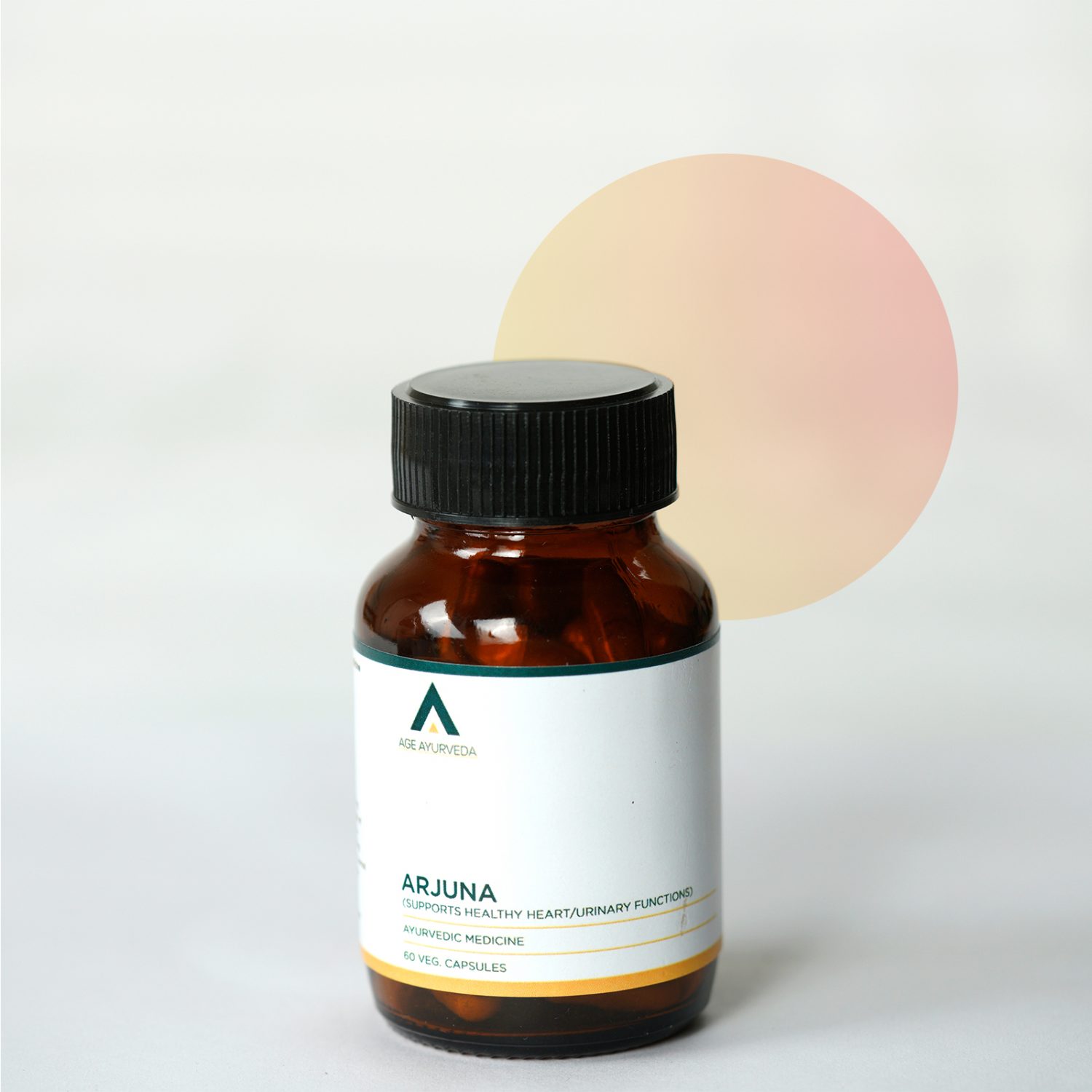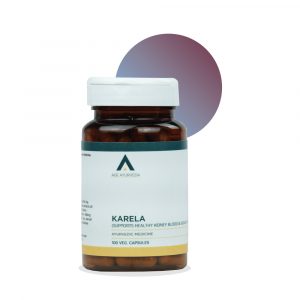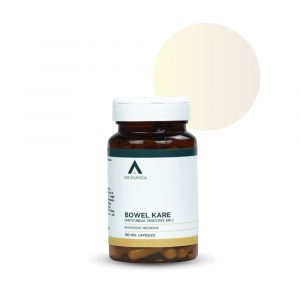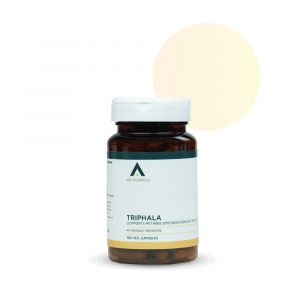Arjuna
Cardiac/ Heart WellnessCough/ Cold/ Sore ThroatDigestionDigestive WellnessContains 60 Vegetable Capsules made in a GMP certified facility
Dosage:
Adults: 1 to 2 capsule twice daily, preferably with water or as directed by physician.
Children: 1 capsule twice daily, preferably with water or as directed by physician.
Side Effects and special precautions: No known side effects have been observed during its traditional use.
Description
What is Arjuna ?
Arjuna the third brother of the Pandavas, also the bearer of the Hindu sacred text The Bhagvat Gita, which is regarded as the prime source of spiritual knowledge and inspiration for humankind. Articulated directly by Lord Sri Krishna to his disciple and intimate friend, Arjuna. Arjuna symbolizes valor, loyal, pure, archerer, achiever, provider, protector and many more verbs are used in the Epic Mahabharata to highlight the character of Arjuna, perhaps his quality of single-mindedness in pursuing his goals, stands out above all. This must be the reason why this text was narrated to him and none other. Arjuna tree, botanically known as Terminalia arjuna, has been the main reasons for the hero of Mahabharata to get his name, perhaps the similar qualities in both is undeniable. Arjuna is a tree that belongs to the Combretaceae family, and could grow up to 60 and 80 feet in height. This tree is propagated by seeds and the useful part is its bark. The silvery shining exterior of the bark has also the reason why “Arjuna” means shining in Sanskrit. ”, once a year this bark peels away to reveal the red healing bark, making it accessible for harvest without harm to the tree.
How and where is Arjuna cultivated ?
Arjuna is a large deciduous tree that reaches heights of 80 feet and is usually found along river banks or dry river beds, otherwise, it can grow in almost all types of soils, but prefers humid-fertile soils. Arjuna tree can be germinated by seeds, the germination process takes 50-70 days with 70% success. Arjuna is found to be astringent, bitter, and slightly pungent in nature.
Although a native tree of India and Sri Lanka, today the arjuna tree is found in the tropical and subtropical regions of Southern Asia and Africa
What are the uses of Arjuna ?
The use of Arjuna as an ayurvedic herb has its mention since the Vedic period, Authoritative medicinal texts including Charaka Samhita, Sushruta Samhita, and Ashtang Hridayam, have spoken on it. However, it was not until Maharshi Vagabhatta, who advocated the use of stem and bark powders for heart ailments.
The heart has been considered the most central and integral part of the human body, but we all know that it is also the most sensitive, and emotional organ. Its responses to all external emotional stimuli can affect its functioning. Therefore in Ayurveda, we do not limit ourselves with its psychological action alone. It is important to build the spiritual aspect to further strengthen the emotional aspect. It is not a coincidence that Lord Buddha achieved enlightenment under the Arjuna tree. The protective nature of this tree has given it a modern nickname “Guardian of the heart”. Idiosyncratically It is said to give the person the single-minded courage to strengthen the heart with the will, to accomplish his goals. Age Ayurveda Arjuna evokes pure “Satvic” love. People with these characteristics have a spiritual vision, as they see the Divine in all beings. Such people are fearless like lions and roam about without feeling any apprehensions or danger from any source. It envokes Prem Bhakhti, which can be translated into love and devotion, an ideal state for facing grief and loss. All these attributes help nourish and strengthen the heart. Arjunic acid, arjunolic acid, arjungenin and arjunglycosides present in this plant is the key ingredient for this formulation.
Its pharmacological properties include inotropic, anti-ischemic, antioxidant, blood pressure-lowering, antiplatelet, hypolipidemic, antiatherogenic, and antihypertrophic. Most significant use of Age Ayurveda Arjuna is as a potential cardioprotective agent. Improper digestion aggravates Kapha, which leads to the production of toxins in the body (Ama). This Ama accumulates in the arteries and can lead to blockages. Arjuna has Kapha balancing properties and can be effective to reduce these toxins. It strengthens and tones the heart muscles and helps in the proper functioning of the heart. Age Ayurveda Arjuna also helps control diarrhea, asthma and cough. It strengthens and tones the circulatory system and the heart muscles. Promotes rejuvenation of the soft tissues. This helps maintain healthy cholesterol levels, and blood pressure levels. It is a mild blood thinner and supports coagulation in the blood.











There are no reviews yet.